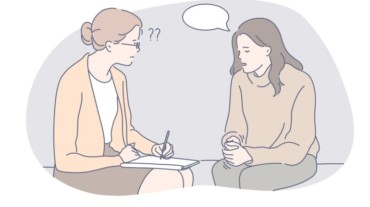
Life is hard, but sometimes it can really take a toll on you! What we essentially mean is the journey is riddled with challenges, and it might get difficult for some people to endure it. For others, their approach to deal with obstacles might not be the best, and that could lead to some long-lasting repercussions in the future. Whatever it is, if you’re going through emotional struggles and are overflowing with anxiety every moment of the day, making it almost impossible to deal with it, then it’s most likely that you’re suffering from a mental health problem.
Of course, there are several pills available in the market today that might bring down your anxiety, but is that a long-term solution? That’s where a psychologist steps in to help you deal with your challenges. That’s because untreated mental health problems can also lead to the inability to function in your day-to-day life. Moreover, it causes difficulty in relationships, increased risk of health issues, hospitalisation, and even suicide.
But before we get down to the details, how do you really know if you need to seek a psychologist?
There are several signs that will help you understand, if you need to get help or not.


We understand it isn’t easy to open up before someone you don’t know, and it’s bound to make you a little anxious and nervous. But remember a psychologist is a professional who can help you feel better, guiding you to make certain changes in your life. If you’re committed and focused, you are bound to transform your life!
First of all, remember that therapy is a space where you can be unapologetically yourself! So, whether you are ashamed of something or feel vulnerable, don’t be afraid to show it. That’s because a psychologist is trained to help you deal with it. Moreover, therapy helps you to accept certain areas of your life, and helps you trigger change in other areas, so that your life becomes much simpler.
Also, whatever your goals are, make sure to write it down and communicate it to your therapist. You need to be very specific about the problems, challenges and goals that you aim to achieve, so that your purpose is fulfilled.
Last but not the least, remember therapy is a safe space, where no one is going to judge you for the way you are! You need to believe in this and work towards being a better version of yourself, with the help of your therapist.